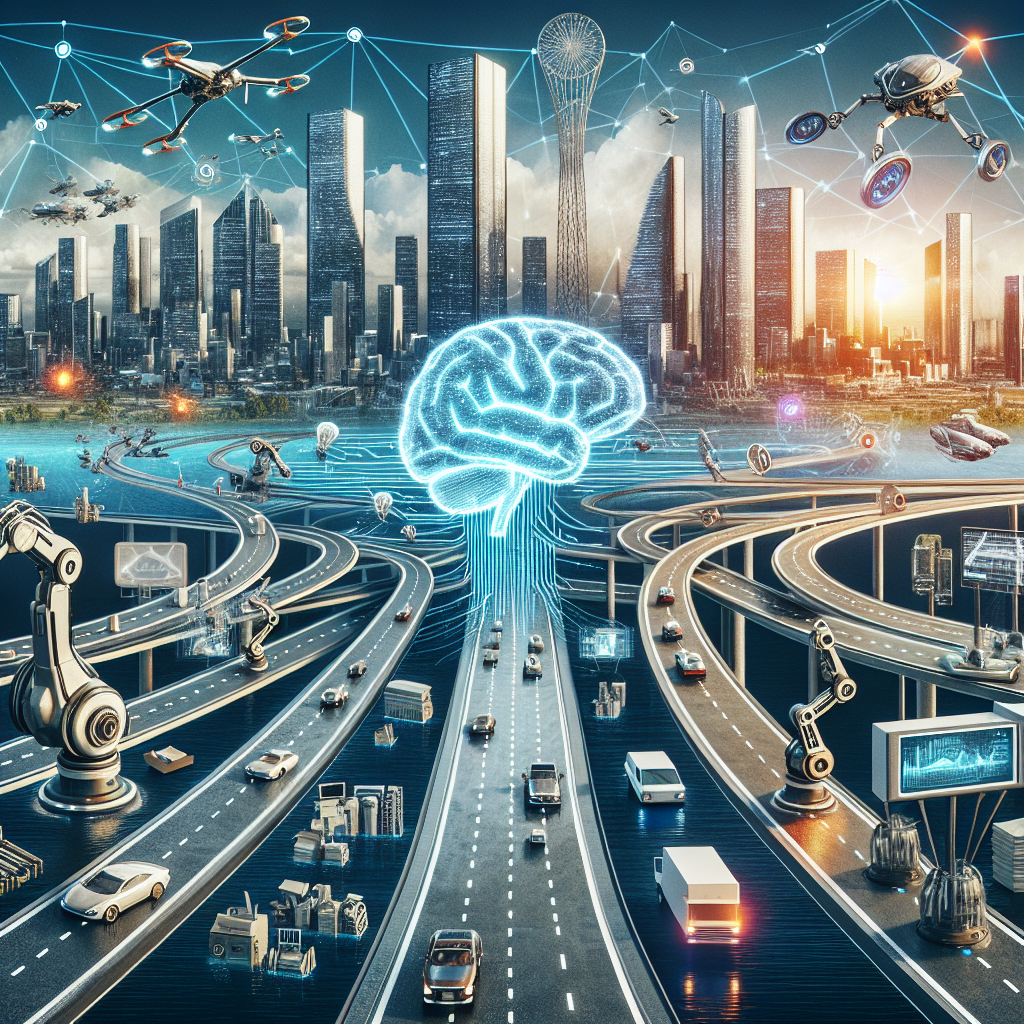Artificial General Intelligence (AGI) is a rapidly developing technology that has the potential to reshape the landscape of work and automation in a profound way. AGI refers to a type of artificial intelligence that can perform any intellectual task that a human can do. This includes tasks such as problem-solving, decision-making, and learning new skills. Unlike narrow AI, which is designed to perform specific tasks, AGI has the ability to adapt and learn in a wide range of scenarios.
As AGI continues to advance, it is expected to have a significant impact on the way we work and the types of jobs that are available. From increasing automation to creating new opportunities for innovation, AGI is set to revolutionize the workforce in ways that we have never seen before. In this article, we will explore how AGI is reshaping the landscape of work and automation, and what this means for the future of work.
The Rise of Automation
One of the key ways in which AGI is reshaping the landscape of work is through the rise of automation. Automation has been a growing trend in many industries, as companies look to streamline processes and improve efficiency. With the advent of AGI, this trend is expected to accelerate even further, as AI systems become more advanced and capable of performing a wider range of tasks.
AGI has the potential to automate a wide range of jobs that are currently performed by humans, from manual labor to white-collar tasks. This could lead to significant job displacement in many industries, as companies look to replace human workers with more efficient AI systems. While automation can help to improve productivity and reduce costs, it also raises important questions about the future of work and the impact on workers who may be displaced by AI systems.
Creating New Opportunities for Innovation
While automation may lead to job displacement in some industries, AGI also has the potential to create new opportunities for innovation and growth. By automating routine tasks, AGI can free up human workers to focus on more creative and strategic roles. This can lead to new opportunities for innovation and the development of new products and services that were previously not possible.
AGI can also help to improve decision-making and problem-solving in a wide range of industries. By analyzing large amounts of data and identifying patterns and trends, AI systems can help companies make more informed decisions and improve their overall performance. This can lead to increased efficiency, higher profits, and a competitive advantage in the marketplace.
The Future of Work
As AGI continues to advance, it is clear that the future of work will be radically different from what we know today. Jobs that were once considered safe from automation, such as creative and strategic roles, may now be at risk as AI systems become more advanced. This raises important questions about how society will adapt to these changes and what steps can be taken to ensure that workers are not left behind.
One of the key challenges of the rise of AGI is the potential for job displacement and income inequality. As AI systems become more advanced and capable of performing a wider range of tasks, it is likely that many jobs will be automated, leading to job losses in many industries. This raises important questions about how society will adapt to these changes and what steps can be taken to ensure that workers are not left behind.
One possible solution to this challenge is the implementation of universal basic income (UBI), which would provide all citizens with a guaranteed income to help offset the impact of automation on the workforce. This could help to ensure that workers have the financial stability they need to adapt to the changing job market and pursue new opportunities for education and training.
FAQs
Q: Will AGI replace all human jobs?
A: While AGI has the potential to automate a wide range of tasks currently performed by humans, it is unlikely that it will replace all human jobs. Many roles require human creativity, empathy, and critical thinking skills that are difficult to replicate with AI systems. However, certain jobs that involve routine tasks or data analysis may be at risk of automation.
Q: How can workers prepare for the rise of AGI?
A: Workers can prepare for the rise of AGI by developing skills that are difficult for AI systems to replicate, such as creativity, emotional intelligence, and problem-solving. This may involve pursuing education and training in fields that are less likely to be automated, such as healthcare, education, and the arts. Workers can also stay informed about developments in AI and automation and seek opportunities to learn new skills and adapt to the changing job market.
Q: What are the ethical implications of AGI?
A: The rise of AGI raises important ethical questions about the impact on society, including issues of job displacement, income inequality, and privacy. It is important for policymakers, businesses, and the public to consider these ethical implications and take steps to ensure that the benefits of AGI are shared equitably and that potential risks are mitigated. This may involve implementing regulations to protect workers, promoting transparency in AI systems, and fostering public dialogue about the ethical implications of AGI.
In conclusion, AGI is reshaping the landscape of work and automation in a profound way, with the potential to automate a wide range of tasks currently performed by humans. While this raises important questions about the future of work and the impact on workers, AGI also has the potential to create new opportunities for innovation and growth. By preparing for the rise of AGI and considering the ethical implications of this technology, society can ensure that the benefits of AGI are shared equitably and that potential risks are mitigated.

